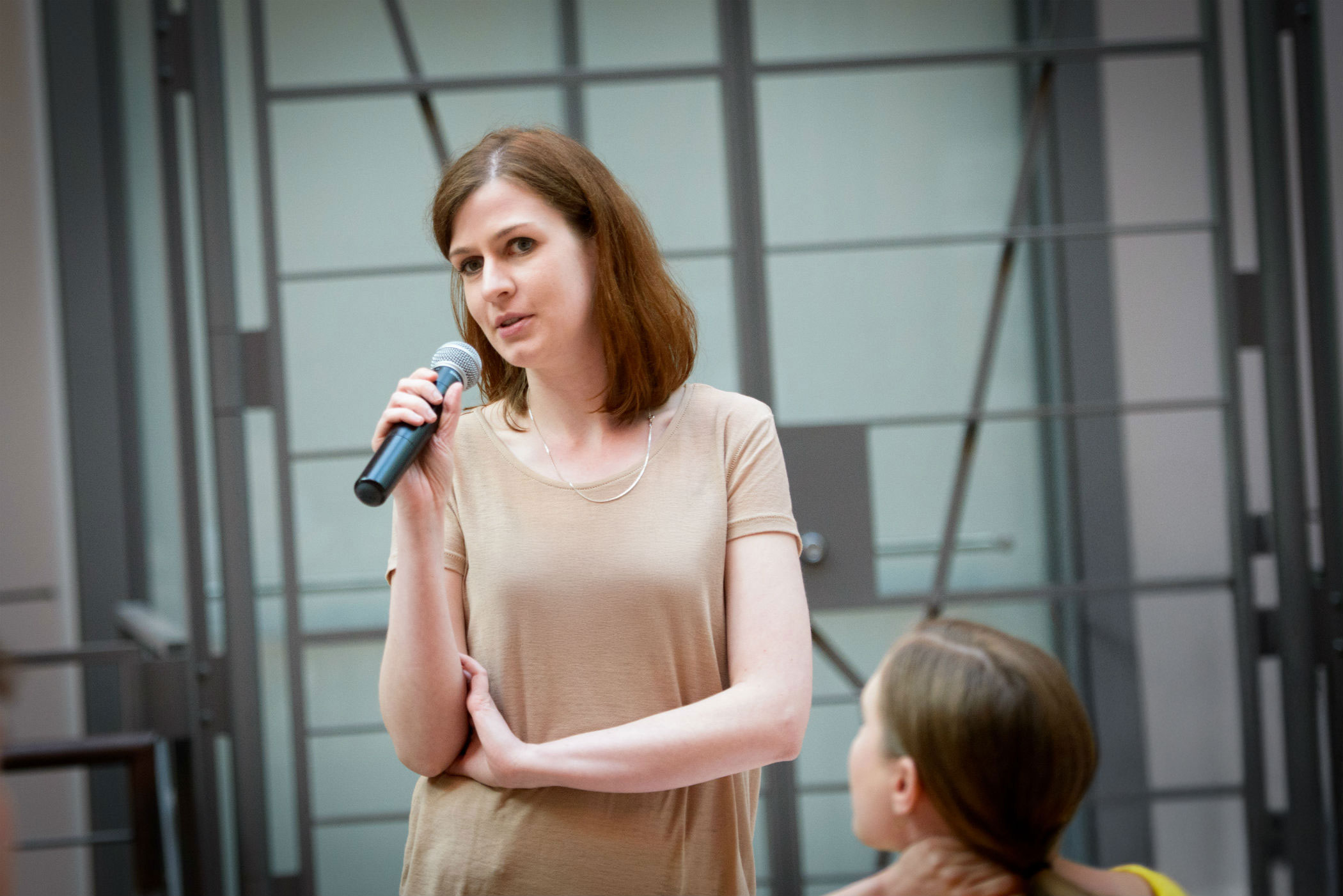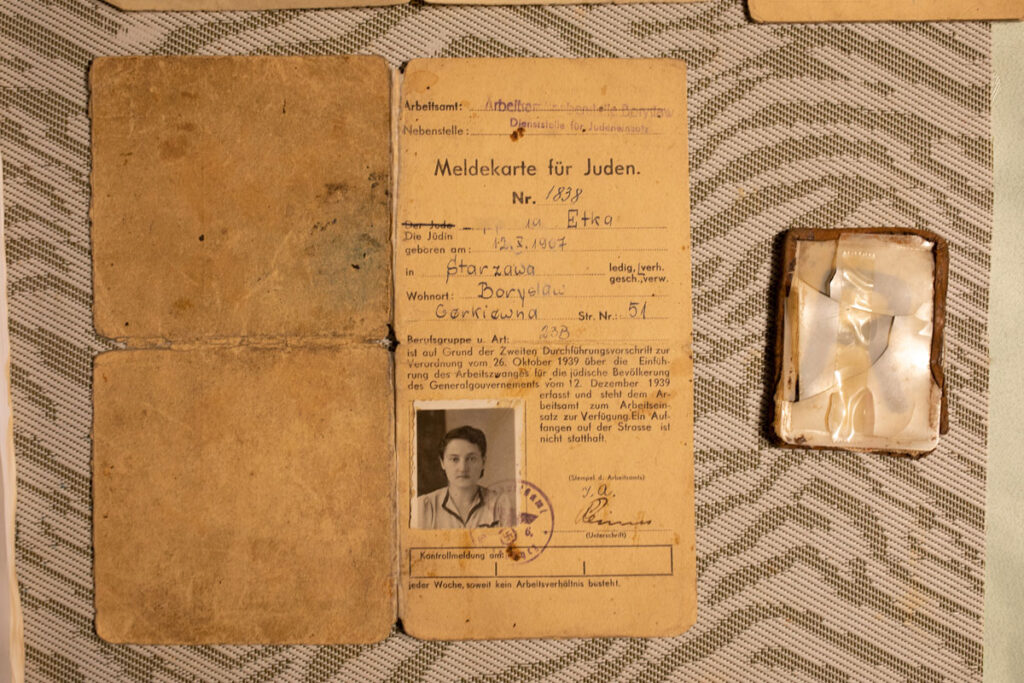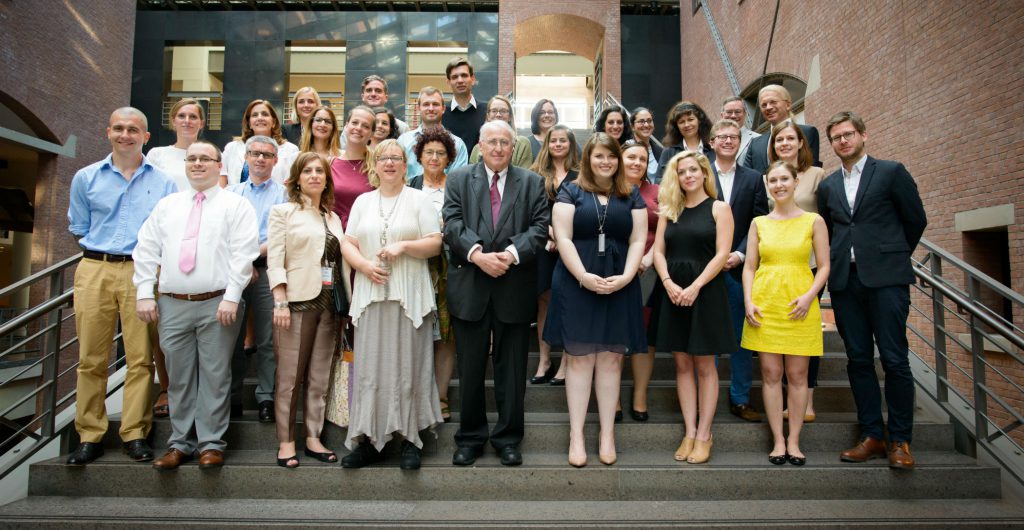
Claims Conference Kagan Fellowships are available for doctoral and post-doctoral candidates around the world conducting Holocaust-related research.
118
Fellowships have been awarded to date
95
PhD track fellowships have been awarded
36
Books have been published by fellows
36
Percent of fellows work in North America
(the largest percentage of any continent)
23
Post-doctoral fellowships have been awarded
53
Fellows hold a university position while 25 fellows work in a Holocaust-related position outside of academia.
The Fellowship
Each year, the Conference on Jewish Material Claims Against Germany (Claims Conference) offers fellowships for doctoral and postdoctoral candidates around the world conducting newly uncovered archival Holocaust research. Eligible emerging and early career scholars in History, Sociology, Jewish Studies, Political Science, Philosophy, Theology, Women’s Studies, and others pursue the advanced study of the systematically targeted destruction and persecution of Jews by the Nazis and their allies between 1933 and 1945 (and the immediate postwar period). Supported research can include: the immediate historical context in which the Holocaust took place; political, economic, legal, religious, or socio-cultural aspects; ethical and moral implications; or other related, relevant topics.
Kagan Fellowships are awarded to outstanding international candidates who exhibit strong personal commitment to Holocaust research, demonstrate excellence in academic achievement, and possess the potential to provide outstanding professional leadership that will shape the future of Holocaust scholarship. Other than attending the summer week-long workshop (see below), there is no residency requirement.

Stipend Information
Doctoral and postdoctoral Fellows receive a maximum of $30,000 per academic year. Fellows receive their stipends each fall and spring of their funding year. Funding can be renewed for a second consecutive year upon reapplication and at the discretion of the Admissions Committee. For doctoral candidates, please note that stipends cannot go toward tuition, and the Kagan Fellowship will only be awarded to those who have received funding for tuition from their university or another institution.
Cohorts
Every group of applicants accepted into the Fellowship program comprises a cohort of Fellows for that academic year.

The Summer Workshop
In 2010, a component was initiated that has rapidly become a hallmark of the Kagan Fellowship program: an academic workshop week held annually in the summer, alternating between the U.S. Holocaust Memorial Museum in Washington, D.C., and Yad Vashem, in Jerusalem. At the summer workshop, each fellow presents current research and work in progress and responds to questions from peers and established scholars. This opportunity allows Kagan Fellows to join the ranks of international presenters in prestigious, academically competitive settings and affords them substantial interaction with senior scholars in the field. All Fellows, including newly admitted, first and second-year (renewed) Fellows are invited. First and second-year Fellows are required to present their research. Select Kagan Fellowship alumni are also invited to attend. The workshop includes ample time to conduct archival research at the host institution.
The Claims Conference covers all of the expenses related to travel and lodging for the summer workshop for all Fellows. (Some exceptions may apply.)
We encourage all applicants, regardless of citizenship, country of origin, gender, sexual orientation, ethnicity, religion or disability. The Kagan Fellowship program honors the admissions policies of participating educational institutions.
Questions?
